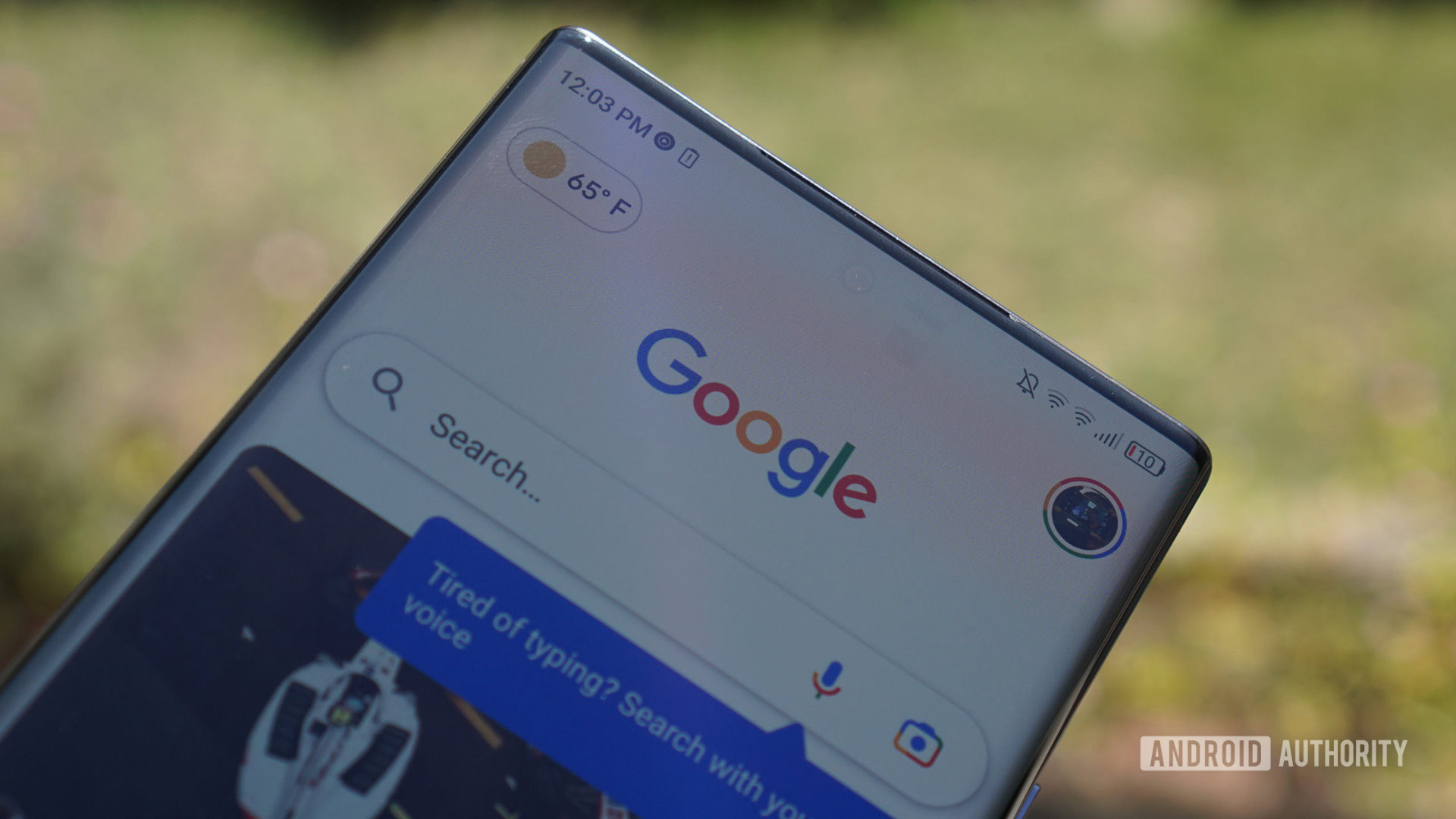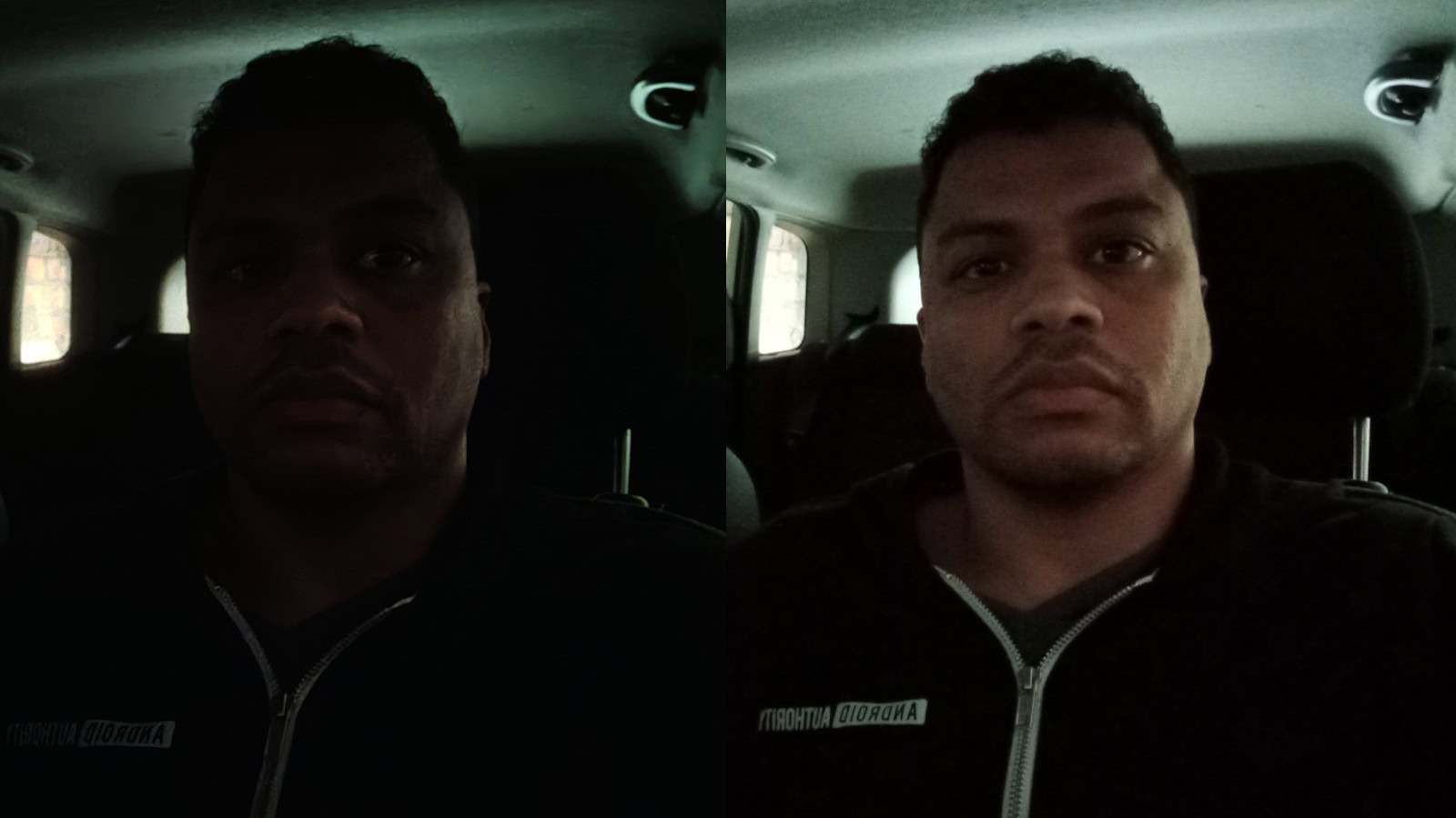Affiliate links on Android Authority may earn us a commission. Learn more.
Daily Authority: 🤳 Under-display cameras are still bad
Published onAugust 17, 2022

😺 Hey there! We finally got our cat, and it turns out she’s 14 years old! She’s still got plenty of energy for zoomies in the mornings and evenings. Anyway, zooming on to the newsletter!
Even mid-range phones beat under-display camera phones

We previously covered our under-display selfie camera shootout in the roundup yesterday, but it definitely warrants a deeper dive. Under-display selfie cameras are one of the more interesting developments in the smartphone space right now (along with foldables), but putting a camera under the screen introduces a host of challenges.
What are the challenges?
- By moving the selfie camera below a phone’s screen, you’re drastically cutting down on the amount of light that will hit the camera sensor.
- This is because the sensor now has to look between the screen’s pixels for light and to take the picture. And we all know that more light is better for cameras.
- Having a display above the selfie camera also means that lens flare, glare, and refraction can be a real problem.
- One way to improve things is to space out the display pixels in the area above the selfie camera. But this can lead to major haziness in this area compared to the rest of the display.
- So it’s a real balancing act between camera quality and display quality. We previously saw the Galaxy Z Fold 3 take the hazy approach instead.
What does ZTE bring to the table?
- ZTE is already on its third generation of the technology with the Axon 40 Ultra that was released earlier this year. You can read our review at the link.
- The company says that the display area above its 16MP under-display selfie camera has a new subpixel arrangement.
- ZTE also says that the area above the screen has 400 pixels per square inch (PPI). That’s a high PPI number and should mean no haziness here.
How does it fare against mid-range phones?
- Well, we tested the new camera against the recently released POCO F4 (~$400) and 2018’s OPPO A3 (~$330 at launch).
- The POCO device has a 20MP selfie shooter, while OPPO’s phone packs an 8MP camera. So far, so pedestrian.
- Our shootout shows that even a mid-ranger from 2018 can deliver better results. Check out the composite image near the top, showing the ZTE camera sample on the left.
- The gap can be quite small in daytime situations, but pixel-peeping still reveals that mid-rangers are ahead. This gap also widens in a big way in low light.
- ZTE’s camera also suffers from particularly noticeable lens flares and artifacts in situations where there is a strong light source in the scene (both during the day and at night).
- Needless to say, under-display cameras still aren’t ready for most people. Well, unless you don’t care about selfie image/video quality at all.
- Fortunately, there’s no shortage of phones with great selfie cameras on the market. And there’s probably no shortage of cheap phones that can beat ZTE’s under-display camera.
Roundup
📱 Did you get Android 12 instead of Android 13? Google says this wasn’t a mistake (Android Authority).
🔆 Nothing clarifies why it reduced the Phone 1’s brightness and future steps: It turns out that the hardware supports the original claim but software caps the maximum brightness (Android Authority).
🔧 The Pixel 6 Pro gains a long-overdue display feature with new mod: Display resolution adjustments are possible thanks to a kernel mod and Android 13 (Android Authority).
🎮 Nintendo of America’s testers say they’ve faced years of sexual harassment: An in-depth report from Kotaku cites 10 sources who paint a picture of sexist behavior with little action to address it (Kotaku).
🐅 De-extinction company sets its next (first?) target: The thylacine — A company called Colossal is teaming up with an Australian lab to resurrect the Tasmanian Tiger. This sounds more ambitious than our local Quagga Project, which basically delivers zebra that look like the extinct Quagga rather than the actual animals (Ars Technica).
📞 The Google Pixel 7 could be getting four global models: FCC filings show two models with mmWave 5G and two without, much like the Pixel 6 series filings last year (Android Authority).
✈ American Airlines is purchasing 20 of Boom’s supersonic Overture jets: Airlines aren’t giving up on the Concorde’s supersonic legacy just yet (Engadget).
👂 The line between hearing aids and headphones is about to get way blurrier as the FDA announces approval for over-the-counter hearing aids (The Verge).
🏠 Airbnb is releasing ‘anti-party’ tech to fight unapproved gatherings: The tech, which will be tested in Canada and the US, will look at a user’s history, the length of the booking, whether it’s during weekdays or the weekend, and the distance from their home to the booking (Fast Company).
Wednesday Weirdness
A viral video recently emerged showing a seemingly intoxicated bear in the back of a pickup truck. More details have since been revealed, and it turns out the bear was rescued in Turkey after eating so-called ‘mad honey’ (h/t: Yahoo News). This type of honey can reportedly cause intoxication and hallucinations.
Thankfully, this story has a happy ending. Turkey’s Agriculture and Forestry minister posted a video on Twitter last week showing the bear (named Balzik by the ministry) being released back into the wild.
The mention of honey reminds me a bit of the story about them making Winnie the Pooh into a horror film, although I think I’d probably still rather watch the Disney version.
Have a sweet day!
Hadlee Simons, Editor.
